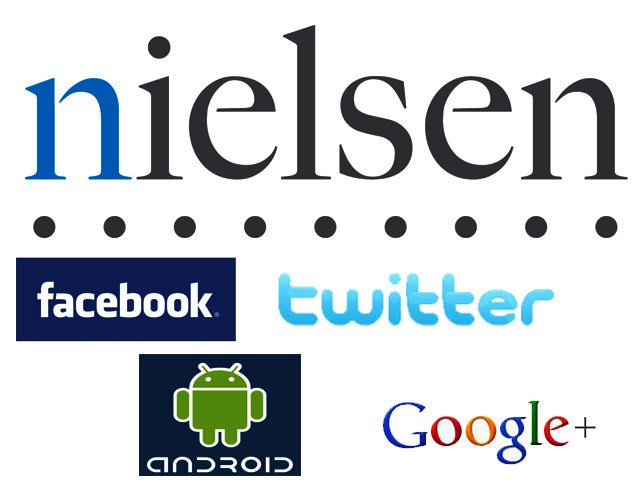Nielsen releases report on impact of social media
By Ryan Noik 14 September 2011 | Categories: news
Global information and measurement company Nielsen has released a report on the impact of social media. The report states that “social media’s popularity continues to grow, connecting people with just about everything they watch and buy. Whether it’s a brand icon inviting consumers to connect with a company on LinkedIn, a news ticker promoting an anchor’s Twitter handle or an advertisement asking a consumer to ‘Like’ a product on Facebook, people are constantly being driven to social media.”
The report is the result of the State of Social Media Survey conducted by the company. It polled a representative sample of 1865 adult (18+) social media users who were recruited from the Nielsen Online Panel to take an online survey, with social media user being defined as participating, talking, and networking online through various platforms to share information and resources. This included internet forums, blogs, Facebook, Twitter, video sharing, consumer rating and other social networking websites. The survey was conducted from March 31 to April 14 this year internationally.
Nielsen explained that the report and the understanding gleaned from this survey was intended to provide insight into how powerfully social media influences consumer behaviour, both online and offline. Nielsen continued that in the US, social networks and blogs reach nearly 80% of active internet users and represent the majority of Americans’ time online. Additionally, the report stated that the value of the time consumers spend online and on social networks and blogs continues to grow. This is most apparent through social media’s influence on purchase decisions.
The report elaborated that 60% of people who use three or more digital means of research for product purchases, learned about a specific brand or retailer from a social networking site, while 48% of these responded to a retailer’s offer posted on Facebook or Twitter. With this in mind, Nielsen asserted that it is crucial for traditional media, retailers, brands and advertisers to understand how different consumer segments use and share content.
To this end, key findings from the report include:
- Close to 40% of social media users access this content from their mobile phone.
- Social networking apps are the third most-used among US smartphone owners.
- Internet users over the age of 55 are driving the growth of social networking through the mobile internet.
- Although a larger number of women view online video on social networks and blogs, men are the heaviest online video users overall, streaming more videos and watching them longer.
- 70% of active online adult social networkers shop online.
- 53% of active adult social networkers follow a brand, while 32% follow a celebrity.
- Across a snapshot of ten major global markets, social networks and blogs reach over three-quarters of active internet users.
- Tumblr is an emerging player in social media, nearly tripling its audience from a year ago.
A more detailed snapshot
The survey showed that social networks were responsible for the majority of time spent online, followed by online games and email, while women make up the majority of visitors to social networks and blogs. Facebook continues to reign supreme as the top US social network, with more than 140 million visitors during May 2011 - which was nearly three-times the audience of the number 2 site, Blogger - and reaching 70% of active US internet users.
Additionally, the report stated that mobile social media use is on the rise, with the ability to access social media being a commonly used feature among mobile owners. This comes as little surprise, considering the recent releases of ‘Facebook phones,’ such as HTC’s ChaCha and the recently announced Vodafone Blue phone, which are aimed at taking advantage of the increase in mobile social media usage.
This further extends to a rising popularity of social media apps, with the report citing it as the third most-used type of mobile application among US smartphone owners who download apps. Nielsen elaborated that Facebook was found to rank as the most popular app across all operating systems and Twitter is the number 5 most used app on BlackBerry and Windows Mobile operating systems.
The report elaborated that, as app usage in the US continues to grow, it might be assumed that growth is at the expense of the mobile internet, but this was not found to be the case. “Mobile internet usage - the use of a browser on a mobile device - is alive and well with the unique number of mobile internet users in the U.S. up 47% over the last year,” continued Nielsen.
Playground of the Influencers
Perhaps the most interesting insight offered by the report is that active social media users are influential offline. Nielsen explained that consumers frequently trust the recommendations of their peers, making social media an ideal platform for influencers to spread their ideas.
Social media users were also more likely to create reviews of products and services. Additionally, the report continued that offline, active adult social networkers are more likely than the average adult internet user to be found at political rallies, professional sporting events and working out at the gym.
The findings though come as little surprise, given the rapid growth of new social media sites such as Google+, the introduction of new features to Facebook’s privacy controls due to popular demand, the recent update of Blogger.com, and the seemingly unstoppable momentum of Twitter.
For more follow TechSmart on Twitter and join us on Facebook.
Most Read Articles

Have Your Say
What new tech or developments are you most anticipating this year?



